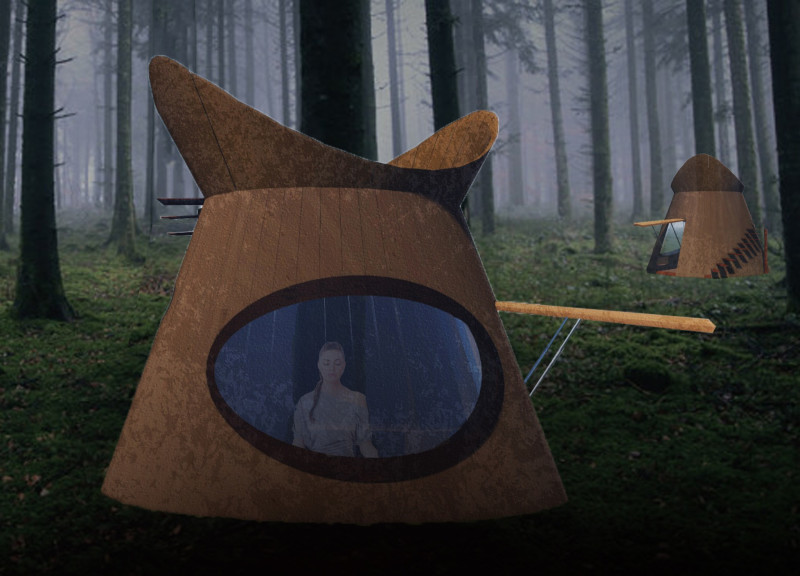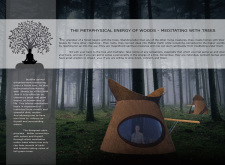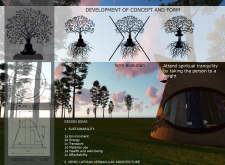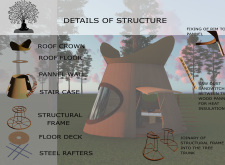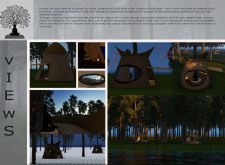5 key facts about this project
The design focuses on creating a calm cabin space dedicated to meditation and reflection, set in a quiet forest. It draws inspiration from Buddhist practices, particularly the idea of finding enlightenment through nature. The overall design aims to provide an environment that encourages mindfulness, allowing occupants to engage in self-reflection and spiritual growth.
Design Concept
The layout emphasizes a close relationship between the building and the forest. Each aspect is carefully arranged to promote a connection with nature. The space is structured to invite occupants to engage with the natural surroundings, creating a peaceful atmosphere. This thoughtful arrangement fosters a sense of tranquility, essential for deep contemplation.
Meditation Spaces
The cabin features specific areas designed for meditation, offering a place where users can disconnect from the outside world. These spaces are intended to help individuals focus and achieve mental clarity. The presence of trees enhances the experience, as users can meditate in direct contact with nature. This physical connection adds depth to the spiritual practice, enriching the overall journey.
Material Considerations
Materials chosen for the cabin reflect a commitment to sustainability and practicality. Heat insulation is provided through sawdust sandwiched between two wood panels, which helps maintain a comfortable internal environment. Additionally, steel rafters connect the structure to the trunks of trees, providing stability while allowing the design to remain visually integrated with its natural surroundings.
Sustainability and Environment
The approach emphasizes environmental sustainability, incorporating solutions that minimize the ecological impact. The design makes use of responsible materials and layouts that immerse occupants in the natural world, reinforcing a sense of serenity. This project is an example of how architecture can meet both the physical and spiritual needs of those who seek a connection with nature.
Light filters through the trees, gently illuminating the interior spaces, enhancing the meditative atmosphere and inviting quiet reflection. The natural sounds of the forest create a soundscape that further promotes relaxation, completing the experience of being in harmony with nature.


